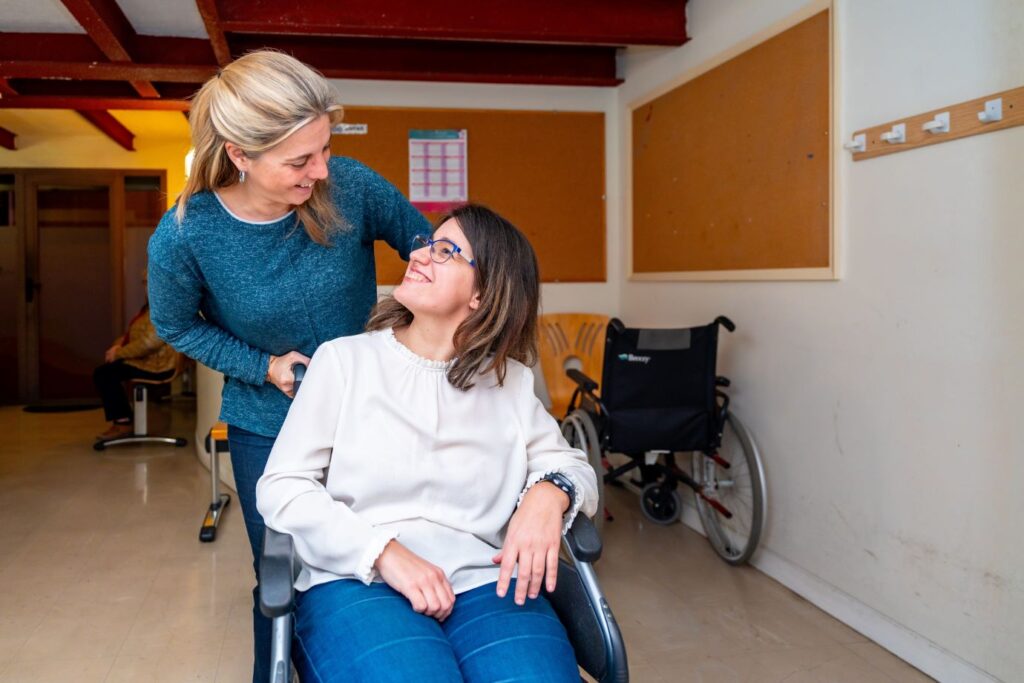The Albanese government announced new measures for the NDIS that it says will put participants “back at the centre” of the scheme, however there is concern among the disability community that recent funding cuts have already undermined the core principles of the NDIS.
As part of the 2024-25 Mid-Year Economic and Fiscal Outlook (MYEFO), Minister for the NDIS Bill Shorten announced on Tuesday that $1 billion in funding has been allocated to improve the experience of NDIS participants, protect scheme sustainability and ensure it is here for future generations of Australians.
The announcement includes $280m in funding for 2025-26 for the National Disability Insurance Agency (NDIA) to move towards what has been called the independent NDIS Review’s person-centred and consistent approach to determining NDIS budgets.
Shorten has defended the reforms as fulfilling the government’s commitment to put the participants back in the centre of the scheme and for the NDIS to be restored back to its original intent. However, the government has faced significant scrutiny in recent months following funding cuts and changes to the NDIS that have been criticised for being a “betrayal” of people with disabilities.
While advocates have criticised the government of watering down choice and control in the NDIS, the Shorten has claimed the new reforms announced this week will improve access for participants.
“One of the most important things heard as part of the NDIS Review – and in my time as NDIS Minister – has been the need to stop people with disability paying for expensive 80-page reports which are not able to be implemented,” Shorten said.
Plans already in place for current participants will remain for people with disabilities, their families, or the wider sector and community.
A further $4.5 million over two years from 2025–26 will allow the NDIA to design and consult on an early intervention pathway in the NDIS to better support children under 9-years-old with developmental delay or disability. The NDIS Review also recommended this and has been crucially missing since the Scheme was first established.
The 2024-25 MYEFO funding will support the implementation of the reforms and key recommendations from the independent Review and enabled by the National Disability Insurance Scheme Amendment (Getting the NDIS Back on Track No.1) Act 2024.
“This new workforce of dedicated support needs assessors will put participants’ needs at the centre and improve the NDIS experience for people with disability,” Shorten said.
“On the flipside, this will also free up allied health and medical professionals time to deliver supports – putting downward pressure on waiting times across the country over the next 5 years for allied health professionals, who have a crucial role in the Scheme.”
The government has claimed the changes will strengthen the sustainability of the scheme so that it remains available to “future generations of Australians”.
“At each step of the way to reform, the Government remains committed to engaging and consulting with people with disability, and their families and carers,” Shorten said.
The public consultation period for changes to the NDIS was open from 4 August 2024 to 25 August 2024.
According to the Department of Social Services consultation, there was a high level of interest and participation in the process, with the Department receiving 6,180 survey responses, 919 email responses and 120 submissions from organisations and peak bodies.
Community consultation suggested the list approach is too prescriptive and there was concern that it could limit choice and control and result in debts being incurred by participants.
Consultation stressed the need for flexibility in what supports a participant chooses and how they are implemented and identified participants feared unknowingly purchasing something that NDIS funding cannot be used, resulting in debts being owed.
In 2021, the Morrison Government was criticised for having “a secret plan to dupe people with a disability and steamroll through controversial Independent Assessments while faking consultation”.
Whilst there has been no evidence to suggest that consultation by the Albanese government has been falsified this way, the level of community opposition towards the reforms should be enough to make the government reconsider their approach.
At the time, Shorten released a statement saying, “Australians with a disability will rightly be outraged that the Government is using taxpayers’ dollars to secretly fight their wishes while at the same time pretending to consult with them meaningfully”.
Whilst the new reforms did not happen in secret, the rushed and haphazard nature of the legislation illustrates how oblivious the government is to the experiences of people with disabilities.


